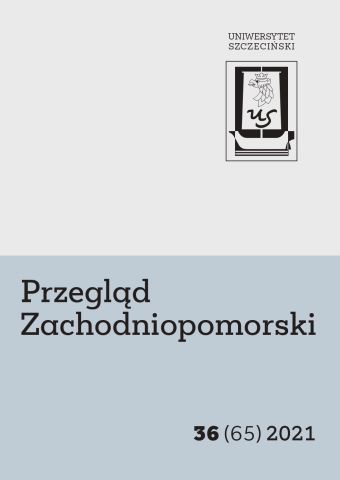Działalność społeczno-polityczna Ukraińców w Polsce w okresie tzw. karnawału „Solidarności” (ze szczególnym uwzględnieniem Pomorza Zachodniego)
Sociopolitical activity of Ukrainians in Poland in time of “Solidarity” Carnival (with particular attention to Western Pomerania)
Author(s): Arkadiusz SlabigSubject(s): History, Cultural history, Sociology, Political history, Social history, Recent History (1900 till today), Post-War period (1950 - 1989), Ethnic Minorities Studies, Identity of Collectives
Published by: Wydawnictwo Naukowe Uniwersytetu Szczecińskiego
Keywords: Ukrainian minority; so called “Solidarity” Carnival; Western Pomerania; Ukrainian youth movement; Ukrainian Socio-Cultural Association
Summary/Abstract: The Ukrainian community in Poland, remembering the breakthrough in the nationalities policies that occurred in the years 1956–1958, attempted to benefit from the political turning points that took place in the following decades. The social activists, acting on behalf of their compatriots, sought to undo the effects of the Operation Vistula by: obtaining consent for mass returns to the South-East of the country, reclaiming the lost property, full reconstruction of the Greek Catholic Church, protection of the Ukrainian cultural heritage, and development of education with the Ukrainian language of instruction. Unsuccessful attempts at implementing these postulates were already made in the years 1968–1971. The 1970s, despite initial appearances of renewal of political life, were perceived by the Ukrainians as a time of further regress in their position. Ukrainian system of education rapidly dwindled, the voivodship structures of the Ukrainian Socio-Cultural Association (US-CA ) were cancelled, and the traditional place names in the Polish-Ukrainian borderland were Polonized. Ukrainian activists decided to once again profit from the specific atmosphere of the period 1980–1981, favourable to grassroots societal activity, and implement the most significant postulates of their community (petitions formulated in Przemyśl and Szczecin). They firmly responded to the attempts by the communist authorities to discredit the Ukrainian minority on the nationalistic basis (case of the Member of Parliament Włodzimierz Oliwa). The younger generation attempted to form their own student organization modelled on the Independent Students’ Association. These efforts failed with the authorities’ refusal and imposition of the Martial Law. A lasting achievement of the period of so called “Solidarity” Carnival were fully legal Ukrainian Sections within the licensed student organizations (SZSP/ZSP), reconstruction of the voivodship structures of the US-CA, and improvement of their office housing conditions. It was a convenient starting point for the Ukrainian activists to take active part in the political transformation during the years 1989–1990.
Journal: Przegląd Zachodniopomorski
- Issue Year: 36/2021
- Issue No: 01
- Page Range: 325-349
- Page Count: 25
- Language: Polish

